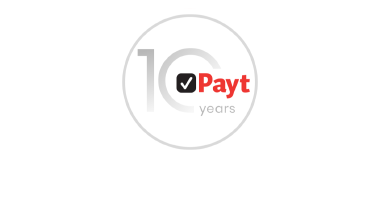Company culture: Security of data

My name is Sander Kamstra, director and one of the founders of Payt. In growing from an attic idea to a serious organisation, I regularly encounter moments that I think have an impact on our company culture. With this series of blogs, I will try to describe every month a situation that shows who we are as a company. I will give you a glimpse into life at Payt.
The case: Processes are more important than results
In my first job as an ICT employee, I had a good idea in which data security was an important part of the proposition. So I took my idea to a senior colleague who was responsible for the security of servers and databases. His answer was simple and no less true today:
“If you want to protect a database of data you should store as little data as possible, allow only uninteresting data and not allow users.”
There are now quite a few ways to make access pretty secure when it comes to allowing users. Fortunately, because without users, our software is of little use. At Payt, we talk weekly about new features that provide a lot of user convenience, but require a concession to data protection. Our data is (unfortunately) also interesting enough to be of great value, so we are ISO27001 certified. This means that we comply with the international standard for Information Security Management Systems (ISMS). I would like to describe an example of where this can lead within the company.
We were only with 20 employees when we got the certificate. We had done a lot of preparation and had written a well thought-out security policy. Within a year, someone at Payt thought that this policy document should not only be known to the decision makers, but also to all other employees. And the best way to do that was to have it signed by everyone. Before this, we thought that a general text about confidentiality in the employment contract was sufficient. Not long afterwards, an extensive list of all hardware, software and processes for each new employee was drawn up (in an intake list). For a year now, one person has been responsible for ensuring that all access is transparent. The intake list has been replaced by an extensive authorisation matrix. To make the process of secure access a little easier, we have an access_request channel in Slack. Sounds good right?
I had requested access in the access_request channel for a new colleague. I wanted to impress her with our speed of action and get her off to a flying start. After a week, there was still no access. Enquiries taught me that a developer had decided not to grant this access because the new colleague had not yet signed the security policy. And shortly afterwards, I received a reprimand for not having filled in the authorisation matrix either.
It is much more difficult to work in a result-oriented way than it is to work in a process-oriented way. You can simply follow a written process. And if you follow it well, at least you will never be at fault.
Related articles

If you're looking for a workplace with an excellent work environment, learning opportunities, and fantastic colleagues, then Payt Software is definitely worth considering - Ivan Malykh, Developer

The art is to do very special things within sectoral issues using Payt's standard cloud software, purely based on configuration - Jeroen Krosse, Managing Board

